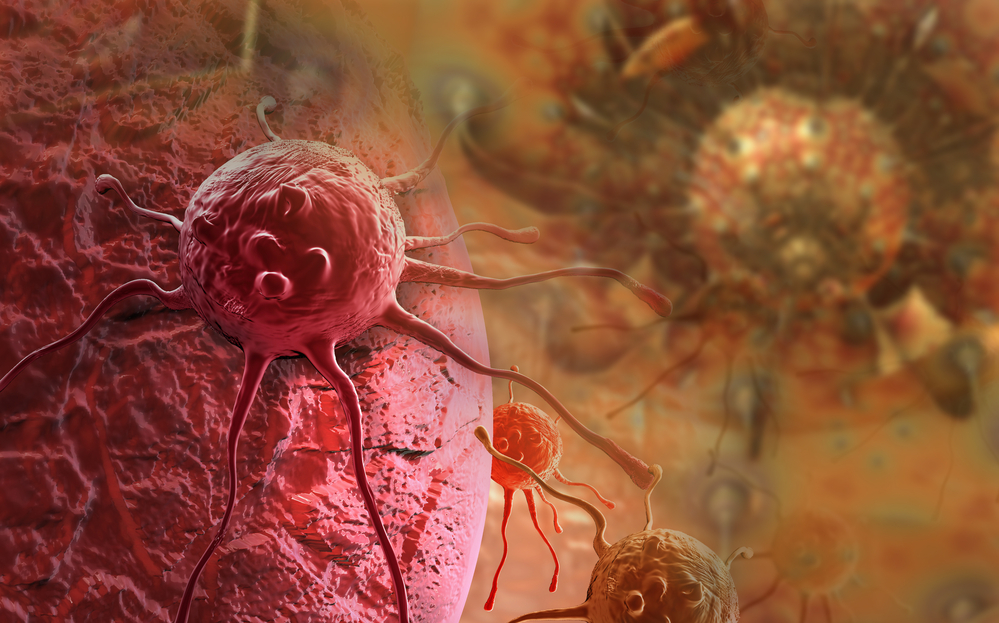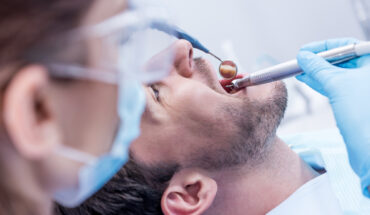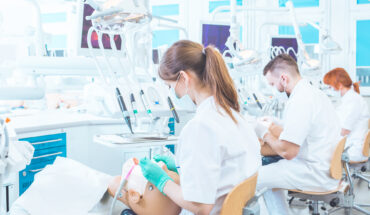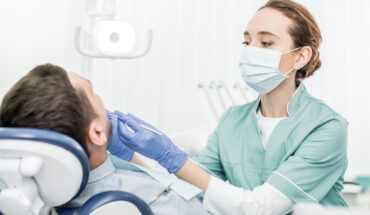
The most common cancer in Ireland
Breast cancer in women with 32% of the total.
Prostate cancer in men with 31%.
Both sexes – colorectal/bowel cancer 11% and lung cancer 11%
Commonest cause of cancer death in both sexes – Lung Cancer 20% of all deaths. Lung Cancer Mortality in Irish women is the 4th highest in Europe; it is more than 50% above the European average and still increasing.
Risk
The risk of developing cancer in Ireland is increasing by around 1% a year but the risk of dying of cancer is falling by about the same amount, showing the impact of improving cancer survival.
The number of cancer cases in Ireland continues to increase by 3% annually and the number of deaths by about 1% annually.
Diagnosis
Most cancer patients are aged over 65 at diagnosis. More than half of the patients with cancers of the cervix, testis and Hodgkin’s lymphoma were aged under 50 at diagnosis.
Treatment
The number of patients having chemotherapy has increased by 13% between 2000-2004 and 2005-2009. The largest increase was for cancers which had a previously low rate of chemotherapy. The percentage having surgery has increased by 2%, and radiotherapy by 4%.
Mortality
Cancer was the second leading cause of death in Ireland after diseases of the circulatory system.
Cancer mortality rate was 35% higher in men than in women and cumulative lifetime risk of death from cancer was 1 in 8 for males and 1 in 10 for females.
Survival
Survival for some cancers—testis, prostate and thyroid—is now over 90% at five years. Long-term survival from cancer has greatly increased in the past decade. Survival at five years from diagnosis has gone from 42% in 1994-1999 to 60% in 2005-2009 in men and from 52% to 62% over the same period in women.
There are currently over 100,000 cancer survivors in Ireland. The number of male and female survivors is about the same, about 25% of all survivors are women with breast cancer.
Source: National Cancer Registry Ireland http://www.ncri.ie/publications/statistical-reports/cancer-ireland-2013-annual-report-national-cancer-registry
An Unhealthy Diet Increases your Risk of Cancer
Diet is thought to be partly responsible for about 30% to 40% of all cancers. Diet includes foods that can protect you against cancer and foods that can increase your risk of cancer. No diet can prevent you from getting cancer. But some foods can make you healthy and boost your immune system, and help keep your risk for cancer as low as possible. Research has shown that getting the nutrients you need from a variety of foods, especially fruits, vegetables, legumes, and whole grains, can make you feel your best and give your body the energy it needs.
Cancer Prevention- Guidelines for Recipes
The following nutritional/ dietary recommendations were made by the World Cancer Research Fund to inform people of the steps that can be taken in the prevention of cancer.
1. Maintenance of Healthy Weight – Recipes which facilitate the maintenance of a healthy weight is important for cancer prevention. Control of portion sizes is also essential to facilitate weight loss in those who are overweight.
2. Avoid energy dense food and drinks – Foods that are high in fat and sugar tend to also be high in calories. Diets high in these foods lead to weight gain, overweight and obesity.
3. Eat mostly foods of plant origin – diets protective of cancer are mostly composed of foods of plant origin. These are foods which are naturally high in nutrients and dietary fibre but are low in energy density.
4. Limit use of animal foods – Diets that have high levels of animal fats can often be high in energy and promote weight gain.
5. Limit consumption of salt, salty foods and foods processed with salt – High intakes of salt and salt preserved foods are a probable cause of a number of cancers.
6. Control portion sizes – Adhere to recommended portion sizes in order to achieve/maintain a healthy body weight.
7. Try to include specific cancer protective nutrients in the diet – Dark green, leafy vegetables; Onions, garlic, chives; Fruits rich in colour; Wholegrain; nuts; Oily Fish
A healthy, nutritious diet is essential in the fight against cancer. Traditional Irish recipes ingredients were based on local foods, simple diet made up of local and healthy foods. Here are some healthy Irish food ideas:
1. Stew – what could be healthier than a pot of vegetables, broth and some lamb or beef.
2. Soda bread – the simple ingredients in this bread and its great taste make it both healthy and delicious.
3. Corned beef and cabbage – this recipe is low in fat and glycemic index.
4. Soup – vegetable soup are low in fat yet nourishing and delicious
5. Oyster and fish – low in calories and lean source of protein.
Sourced from: http://www.cancer.ie/reduce-your-risk/healthy-lifestyle/diet-and-cancer
http://www.cancerfightingcookbook.ie/search/label/Diet%20and%20Cancer%20Report
Cancer News:
Irish Cancer Society Launch SunSmart Campaign
To help reduce the risk of skin cancer, Irish Cancer Society launched their annual SunSmart Campaign. Skin cancer cases in Ireland have now reached over 10,000 annually according to the National Cancer Registry of Ireland (NCRI). The recent study conducted by the NCRI into non-melanoma skin cancer in Ireland highlighted the largest increase in skin cancer cases was found in young people who live in affluent urban settings who are exposed to repeated sunburn, probably from leisure activities.
Skin cancer can be prevented in nine out of ten cases by protecting the skin from harmful UV rays in Ireland from April to September. The Society is encouraging the public to follow the four steps of the SunSmart Code for the best protection.
The SunSmart Code:
SEEK SHADE: when UV rays are at their strongest – between 11am and 3pm.
Cover up – by wearing a shirt with a collar and long shorts. Also wear a hat that gives shade to your face, neck and ears.
Wear wraparound sunglasses – make sure they give UV protection.
Slop on sunscree – use sunscreen with SPF 15 (SPF30 for children) or higher and UVA protection 20 minutes before going outside and re-apply every two hours – more often if swimming or perspiring.
Keep babies under six months out of the sun.
News sourced from: http://www.met.ie/news/display.asp?ID=258




